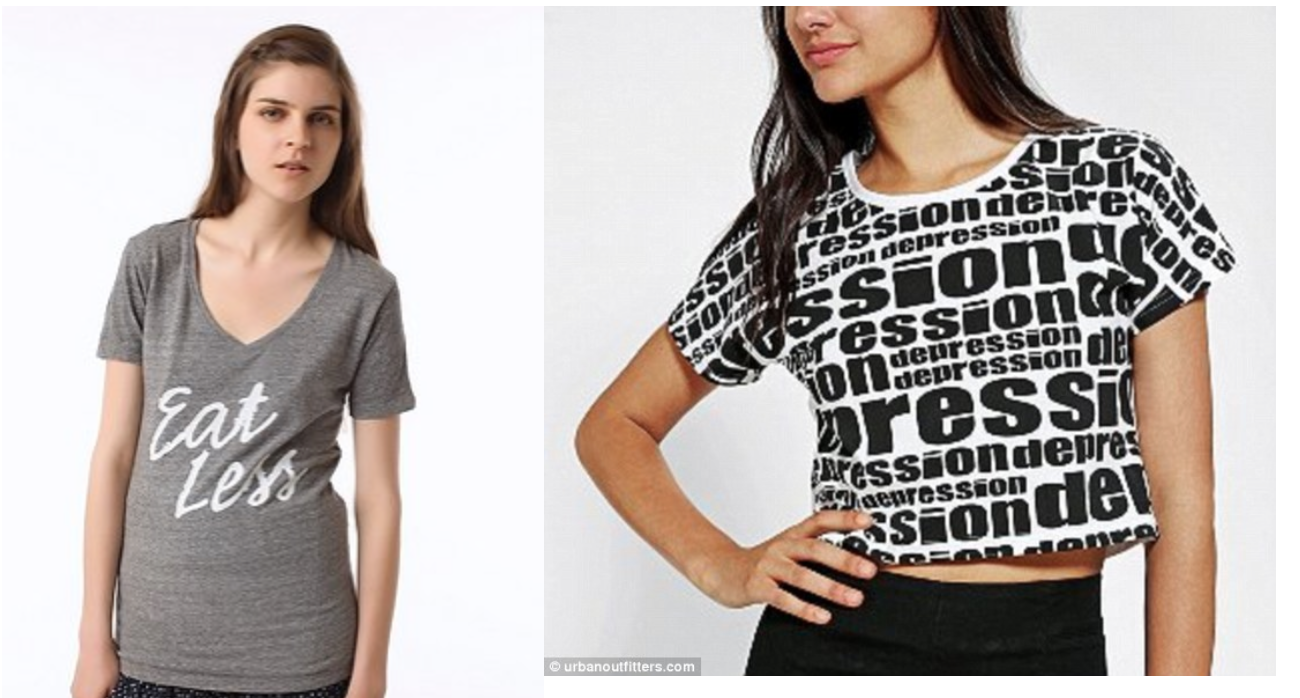Emerging from an increasingly morality-conscious generation, debates around the responsibility clothing brands have over the messages they convey in their garments have come to the forefront.
Urban Outfitters’ “Eat Less” t-shirt and New Look’s sportswear which encourages calorie counting are among some of the disastrous attempts made by clothing brands to appeal to wider demographics. Such brands have been lambasted in the media for their blatant disregard for the moral obligations they have to their consumers, and for their promulgation of irresponsible and harmful messages. It would appear that even big brands are struggling to reconcile their desire to be fashion-forward with their duty to not communicate potentially dangerous ideas to their consumers.

The extent to which clothing brands are liable for the messages they advance is a point of contention, though, with some believing less fervently than others that brands have such a responsibility. What is undeniable, however, is the fact that the ideas conveyed by popular fashion brands do have implications for the people who buy their garments and subscribe to their values and principles. And what can, and indeed must, be said with further certainty is that such ideas can be deeply detrimental to the people they target.
A culture of self-image obsession permeates our current society — from the food we eat to the clothes we wear, most of us are concerned with the way others will perceive us in relation to these things. Popular fashion brands are aware of this culture, and target such insecurities in order to sell more. It is exploitation in ugliest form.

Rather than working to counter the rampant wave of self-consciousness that pervades society, these brands simply perpetuate this culture of self-loathing and self-doubt, something which is particularly disturbing when considering the young and impressionable consumers that such brands appeal to. Surely brands that they recognise, identify with and place their trust in have a duty to ensure that what they communicate to their consumers, whatever their age, is not harmful or damaging?
What’s more, the issues that brands tend to target and exploit are often part of much larger societal and personal problems. This irresponsible designing therefore extends to discourse on problems with self-image, eating disorders and even drug abuse. For example, Urban Outfitters sold a t-shirt that depicted pill bottles as alcohol paraphernalia, thereby trivialising the problem of prescription drug addiction that has surfaced recently. It is this trivialisation of problems which are, in actual fact, highly consequential that is the real issue here.
The truth of the matter is this— we can never really stamp out these societal difficulties so long as they are being normalised by fashion companies, and thus by the consumers that buy their products. It is time for big brands in fashion to begin accepting their responsibility over consumers, and working in opposition to unhealthy social attitudes instead of exploiting them to financial ends.

